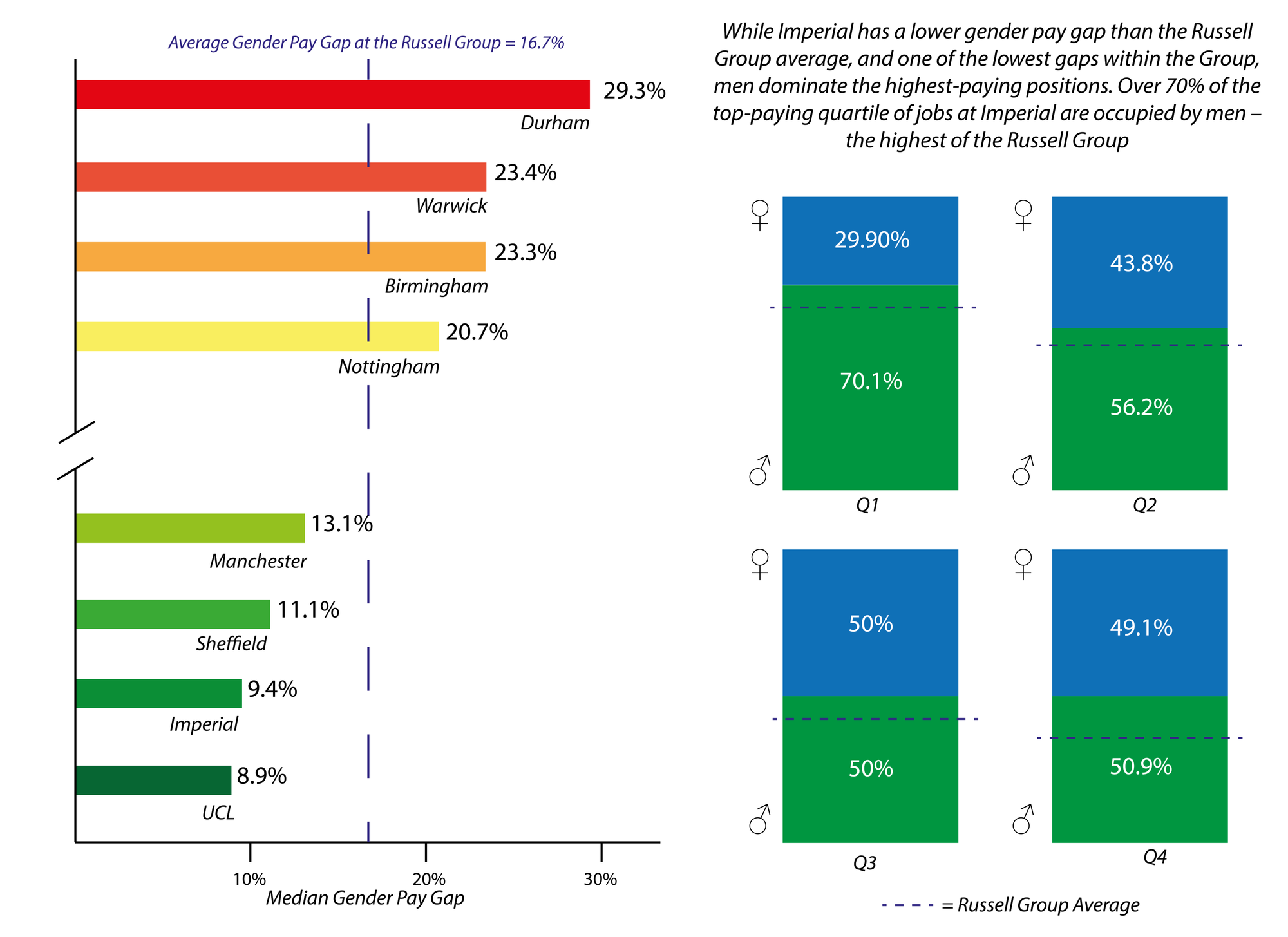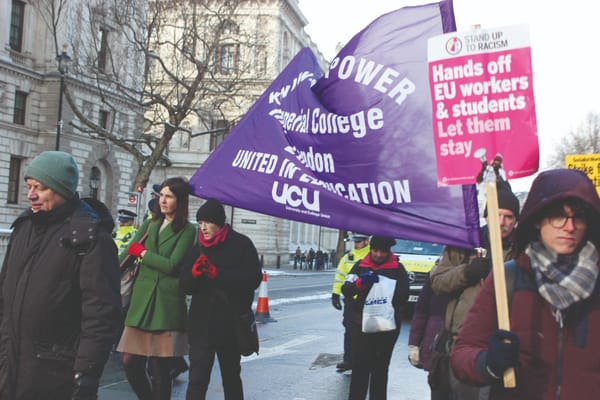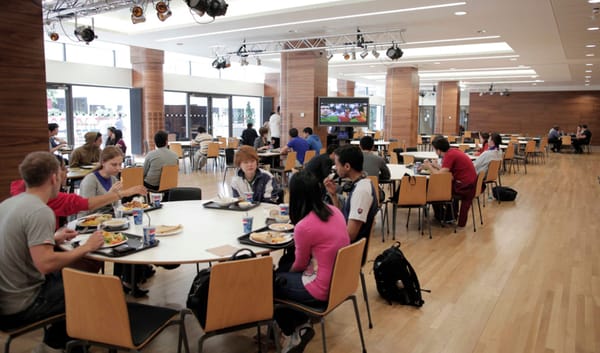Russell Group gender pay gap nearly twice national average
While Imperial has one of the lowest gaps in the Russell Group, men dominate the highest-paid positions.

Data released last month show the Russell Group has a gender pay gap nearly twice that of the national average.
Across the 24 universities making up the Russell Group, the median gender pay gap was 16.7%, slightly larger than the average for higher education institutions (HEIs) as a whole, and significantly higher than the national average of 9.7%.
While Imperial has one of the lowest pay gaps in the Russell Group, with women earning on average 9.4% less per hour than male staff, men dominate the highest paid positions. Male staff occupy over 70% of the highest-paying quartile of jobs – the highest proportion in the entire Russell Group – and 56% of the second highest-paying quartile. Professor James Stirling, Imperial’s Provost, said the statistics were not acceptable.
On average, men occupy just over 60% of the highest-paying quartile of jobs in all Russell Group universities. Women occupy over 60% of the lowest-paying quartile of jobs in the group. Furthermore, men were found to be slightly more likely to be granted bonus pay, which was over 40% higher than that awarded to women.
At Imperial, men were paid bonuses 50% larger on average than women. The College say this gap is because “we have fewer women in senior positions, and bonus payments are proportionate to individuals’ salaries.”
These data come after the government mandated all companies and public bodies that employ more than 250 people to release information on their pay gap.
The Russell Group university with the highest gender pay gap is Durham University, which reported a median gap of nearly 30%. Professor Stuart Corbridge, the vice-chancellor of Durham, said “We recognise that the gender pay gap is a serious issue for Durham University, as it is for society as a whole and the higher education sector in particular.” The university has outlined a series of moves to address the gap, including pay review policies.
The data released by Russell Group universities highlights the difficulties women have in attaining the highest-ranking roles within HEIs – a factor that is one of the key causes of the gender pay gap. For all universities within the Russell Group, the proportion of women decrease further up the pay scale.
While overall Imperial employs more men than women – with 44% of all staff across the College identifying as female – the number of women drops significantly within research and academic settings: the most recent publicly-available Equality and Diversity Committee (E&DC) report, from July 2016, showed only 38% of research staff and 20% of academic staff were women.
This gap widens as staff progress through the ranks of employment: as of 2016, there were 533 male professors compared to 94 female ones, with the data showing a progressive attrition of women as they progress through pay grades.
Out of the 20 heads of departments, only three are women – Professor Dame Amanda Fisher of the Institute of Clinical Sciences, Professor Anne Dell of the Department of Life Sciences, and Professor Michele Dougherty, the newly-installed Head of the Department of Physics. None of the four faculty deans are women.

A number of staff and early-career academics Felix spoke to said this lack of representation had knock-on impacts for their learning experience.
One postdoctoral academic, who has recently finished her PhD at Imperial, told Felix: “I think visibility makes a difference. I feel so empowered by the amazing women I’ve worked with at Imperial, and those who most impacted me personally from an academic standpoint were women. I think that’s because they were all people who were making a deliberate point to build up women and empower them.”
She went on to discuss some of the reasoning behind the disparity: “As a postdoc you’re at a massive disadvantage, because it’s the time most people are looking to have kids, but it’s also the worst time to take a year out of research.” While she highlighted the support available at Imperial, she said “Taking time off can really affect your academic career, and unfortunately for whatever reason women seem to suffer from that.” “At stages above postdoc”, she added, “it’s a leadership role, and there will be a bias towards hiring men.”
A recent study published in Research Policy that followed 20,000 doctoral students found female students were more likely to gain an academic job if their supervisor was a woman. They were also more likely to publish in a high-impact journal. Another recent study reported gender parity in STEM subjects was still a way off, with men likely to outnumber women in publishing in scientific fields until the end of the century.
In a statement, Professor James Stirling, Imperial’s Provost, welcomed the reporting requirement. He said “We are committed to addressing this imbalance by tackling barriers to progression”, citing personalised development, unconscious bias training, and outreach work in schools, among other projects.
Professor Stirling said: “Our activity on gender sits as part of our wider equality work, now led by Professor Stephen Curry – our new Assistant Provost for Equality, Diversity and Inclusion. We are determined to enhance the working environment to make Imperial a better place to work for all our staff.”
What is the Gender Pay Gap?
The term ‘gender pay gap’, as used by the UK government, is slightly misleading. The term refers the difference in hourly pay of all men and all women across a workforce, and occurs when women occupy lower paying jobs, while men occupy higher paying jobs. The term does not refer to women being paid less than men for the same work – although this may happen, this is termed ‘unequal pay’, and has been illegal in the UK since 1970.
From 2017, all large employers are legally obliged to publish the gender pay gap data on their website, and on the government portal. Last week it was reported that one in ten companies still had not released their data, despite the deadline being the 4th April.









